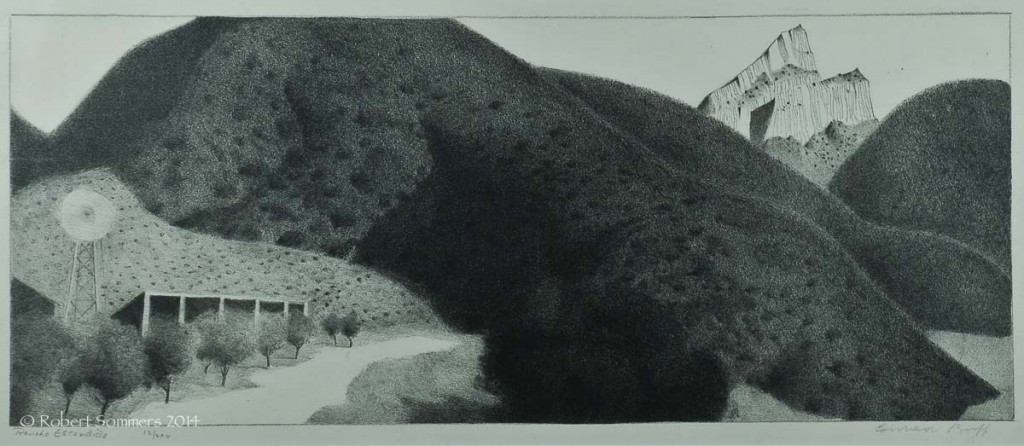 Conrad Buff ( 1886-1975) Rancho Escondido, aquatint and drypoint etching 6 x 16″ p.o.r.
Conrad Buff ( 1886-1975) Rancho Escondido, aquatint and drypoint etching 6 x 16″ p.o.r.
Born in Speicher, Switzerland, the son of an Alpine farmer, Conrad Buff, by the age of forty, had an established reputation as an artist, primarily realistic paintings that expressed his love of the American Southwest.
He was apprenticed at age 14 to an uncle, a baker, and confectioner, and baking became a hobby with him for the rest of his life. He also learned the trade of lace designing and making, which ultimately influenced his pointellist painting style, and which was then a major trade in Switzerland. But he felt constrained with having to copy patterns, and in the early 1900s went to Munich, where he lived the heady life of a young man.
However, money ran out, and at age 19, he came to America and took the first train West. He was briefly on a Wisconsin ranch, working as a sheep herder and then for ten years roamed the West doing odd jobs such as cooking in cafes, bartending, and driving mules on a railroad construction gang. He relieved the monotony by painting in his spare time.
He also explored lithography and silk screen painting and drew directly on stone or zinc plates. With his wife, Mary Marsh, he wrote and illustrated two books: Dancing Cloud and Kobi.
In 1906, he moved to Los Angeles, and from 1907, painted in Arizona. Maynard Dixon was a frequent sketching companion. Buff did a number of large scale murals for banks, schools, and libraries, and with well-known California artist, Edgar Payne, painted a 1000-foot mural for a Chicago hotel.
Conrad Buff died in Laguna Hills, California on March 11, 1975.
Sources:
Edan Hughes, Artists in California, 1786-1940
Peggy and Harold Samuels, Encyclopedia of Artists of the American West
